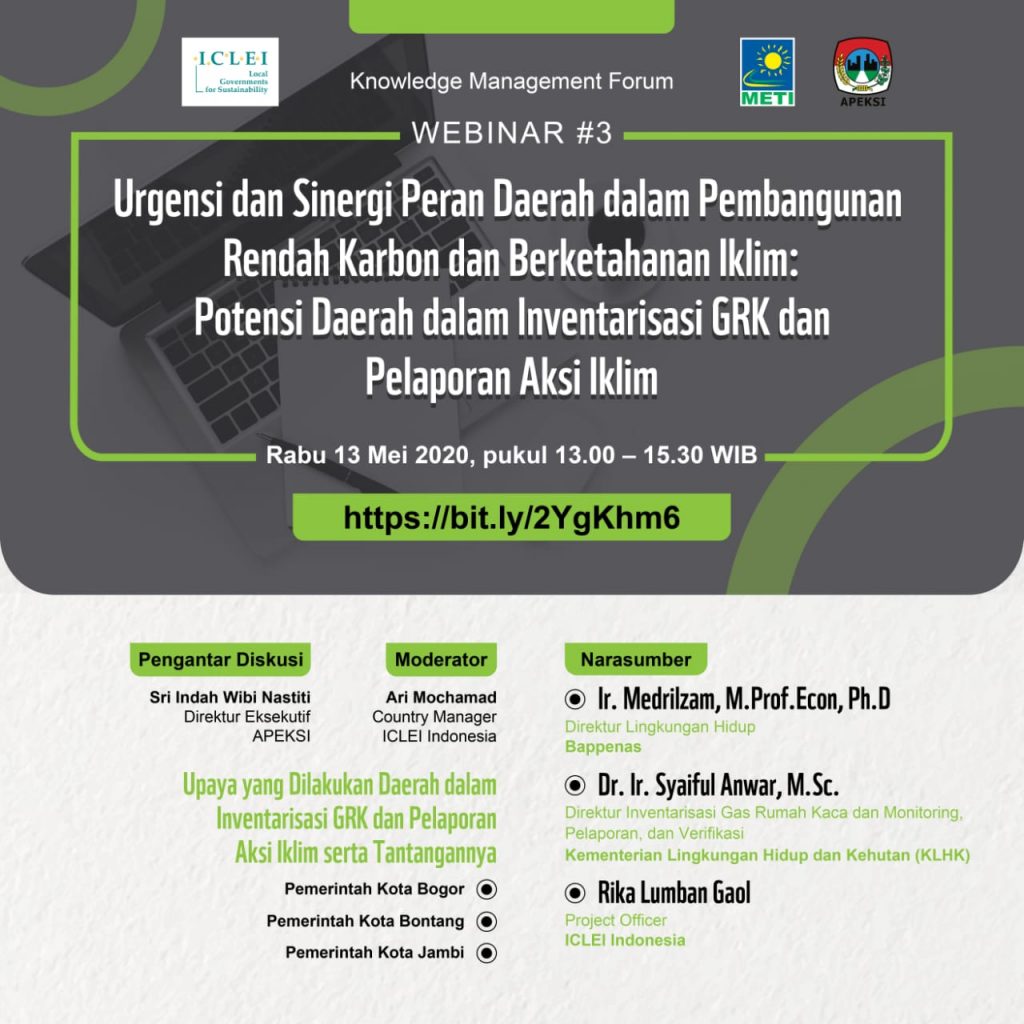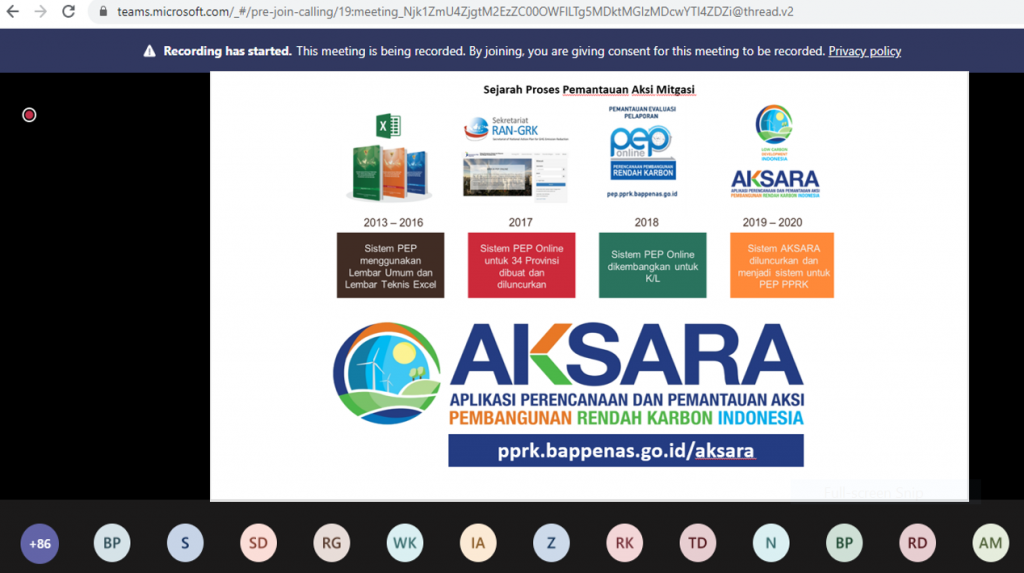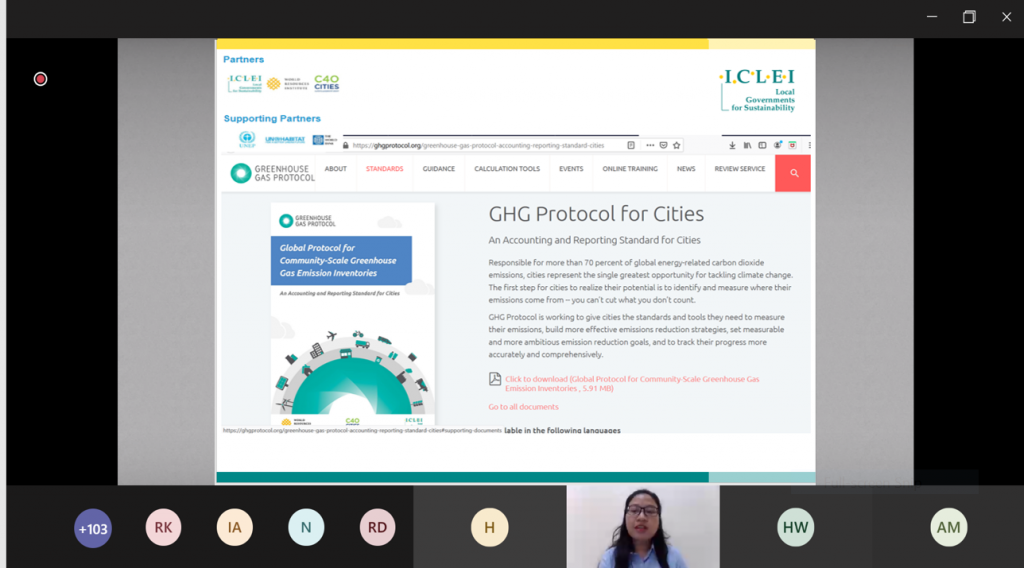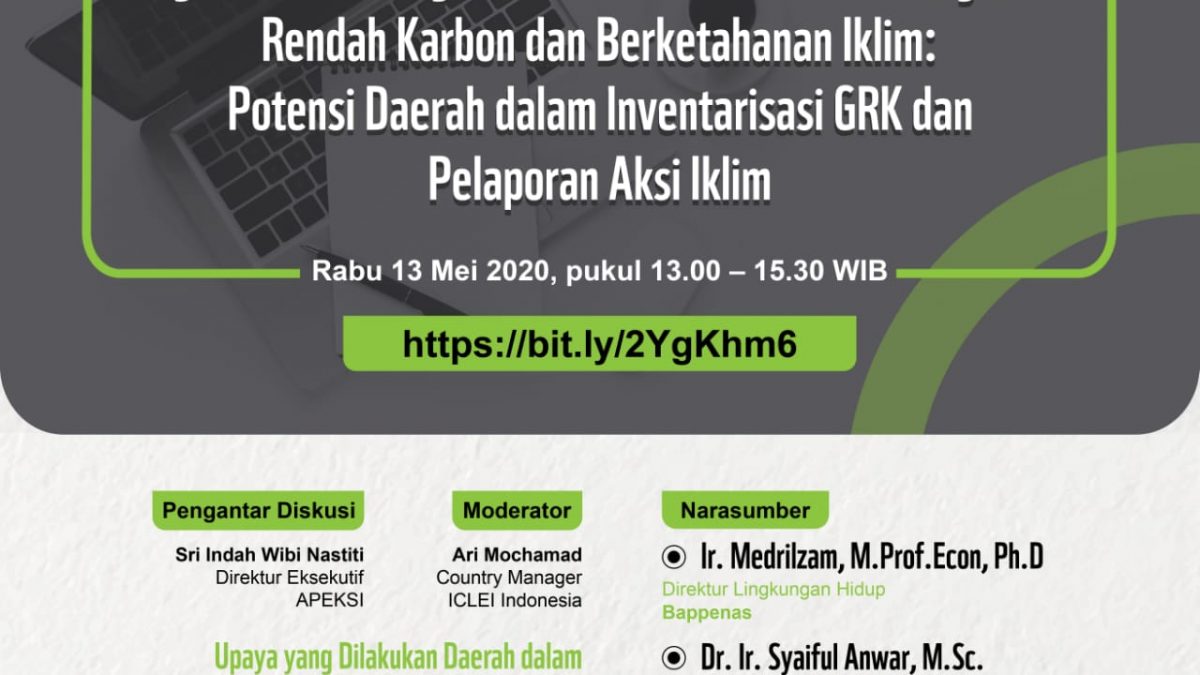
Indonesian local governments demonstrate commitment to low emission development, explores renewable and energy conservation options
May 12, 2020
Balikpapan renews ICLEI Membership and aims for stronger initiatives on sustainable development
May 15, 2020ICLEI Indonesia, in collaboration with the Association of Indonesia Municipalities (APEKSI), WWF Indonesia and Indonesian Renewable Energy Society (METI), held the last Knowledge Management Forum (KMF) webinar series on 13 May 2020. Attended by all local governments in Indonesia and other development partners, the webinar aimed to showcase the effectiveness of the GHG Inventory and Climate Action reporting system and its challenges.

Jakarta, Indonesia – ICLEI Indonesia, in collaboration with the Association of Indonesia Municipalities (APEKSI), WWF Indonesia and Indonesian Renewable Energy Society (METI), held the last Knowledge Management Forum (KMF) webinar series on 13 May 2020. Attended by all local governments in Indonesia and other development partners, the webinar aimed to showcase the effectiveness of the GHG Inventory and Climate Action reporting system and its challenges.
The government of Indonesia has several reporting instruments related to climate actions for relevant stakeholders. In 2013, the Ministry of National Development Planning/BAPPENAS developed PEP online as a portal for monitoring, evaluating and reporting climate change mitigation. Furthermore, the Ministry of Environment and Forestry also developed the national greenhouse gas emission inventory reporting system and the national climate action reporting system, respectively known as SIGN SMART and SRN. Then, the Ministry of Finance has a collaborative system of planning and budget performance information, KRISNA, to tag the budget for mitigation and adaptation actions.
Entering the paradigm shift of national development planning for the period 2020-2024 towards low carbon development and climate resilience as well as realizing the mandate of Presidential Decree No. 61 of 2011, the Government of Indonesia through BAPPENAS transformed PEP Online into Aplikasi Perencanaan dan Pemantauan Aksi Pembangunan Rendah Karbon Indonesia (AKSARA). AKSARA became a platform for recording national low carbon development actions that are transparent, accurate, complete, consistent and integrated with SIGN SMART, SRN and KRISNA.

Bogor City’s greenhouse gas emissions inventory
City of Bogor as a model city under Urban-LEDS II, has conducted a greenhouse gas inventory to determine the baseline year using GPC in 2013. The city also reports its climate data to SIGN SMART, the carbonn Climate Registry and the CDP-ICLEI Unified Reporting System.
Currently, the City of Bogor is in the process of setting targets for reducing greenhouse gas emissions and actively coordinates with the West Java Provincial Government. Responding to weak vertical integration, the city proposes to be part of the West Java Province climate change core team.
“Data availability is a major challenge. Accurate and accountable data is difficult to obtain, especially data available at other institutions. However, we, the local government, do not have the authority to request the data”, said Mr. Windra Kurniawan, Head of Climate Change and Conservation Pollution Control Division, Environmental Agency of Bogor City.
It is also acknowledged by Jambi City that the local governments are having difficulty accessing and managing activity data particularly for energy and forestry sectors because the authority of these sectors are at the provincial level.
During the webinar, Mr. Hari Wibowo, Directorate of GHGI and MRV, Ministry of Environment and Forestry informed that the ministry is preparing a toolkit as a guidance in collecting activity data. The guidance can answer the challenge faced by local governments. He also welcomed recommendations from ICLEI Indonesia to conduct harmonization between the methodology on the SIGN SMART application and GPC, “This certainly does not negate SIGN SMART application, but rather to bridge gaps in coverage to consider the emission source of scope 2 and 3”, he added.
As the last webinar of the KMF, this session also aimed to provide innovations in improving the quality of existing instruments and to develop a new portal on integrated climate action reporting.

More stories

